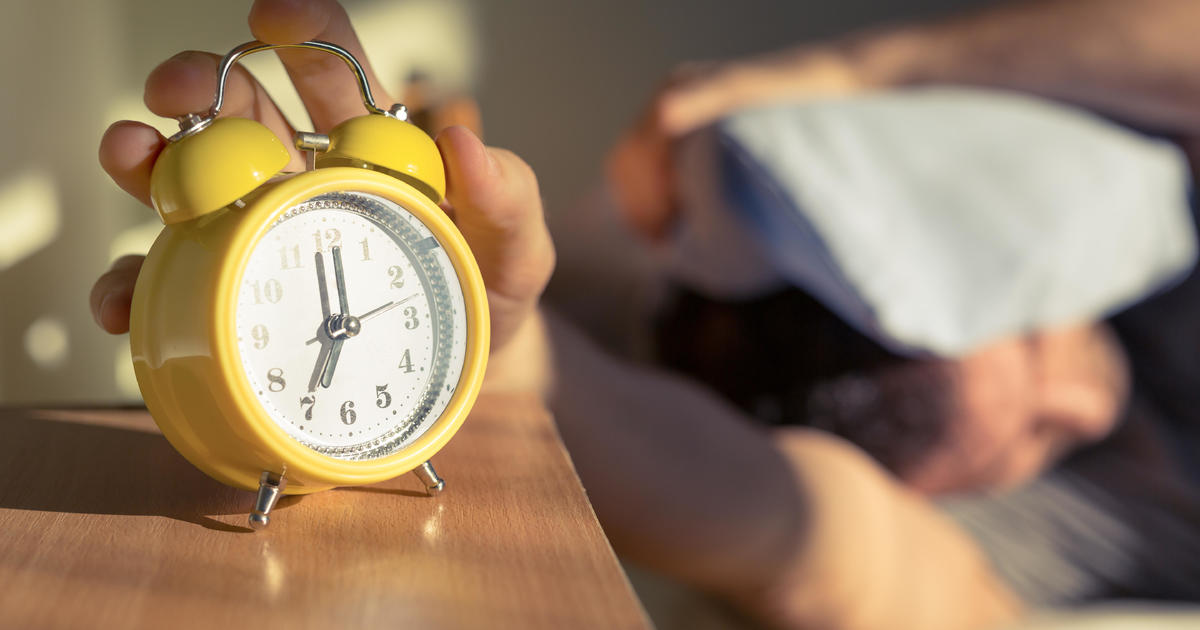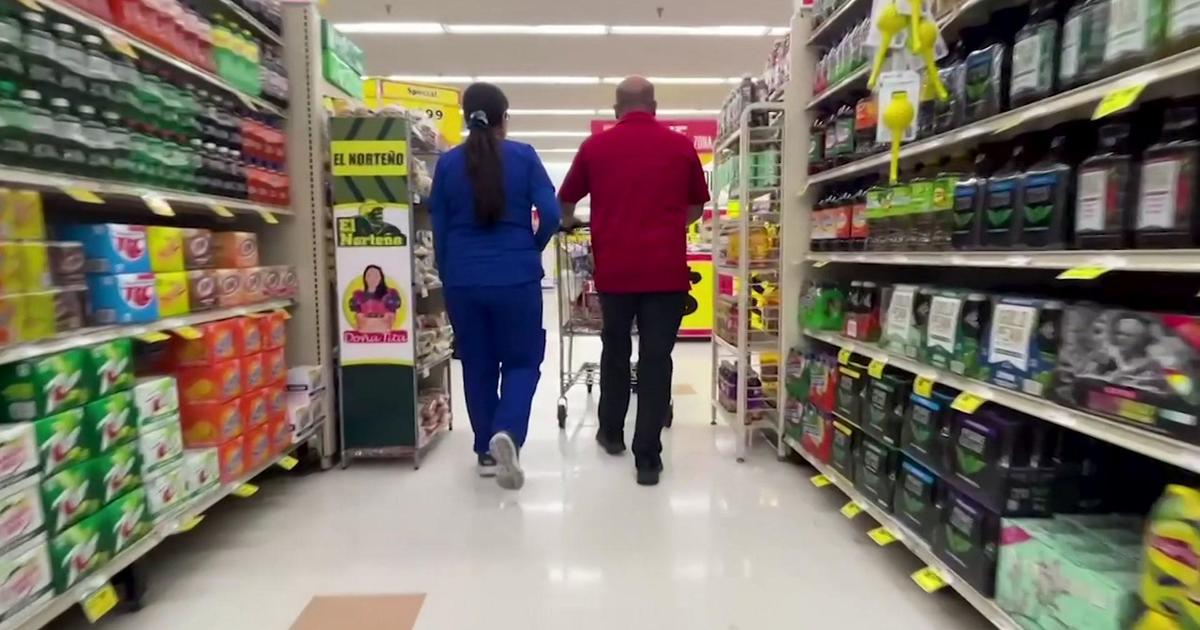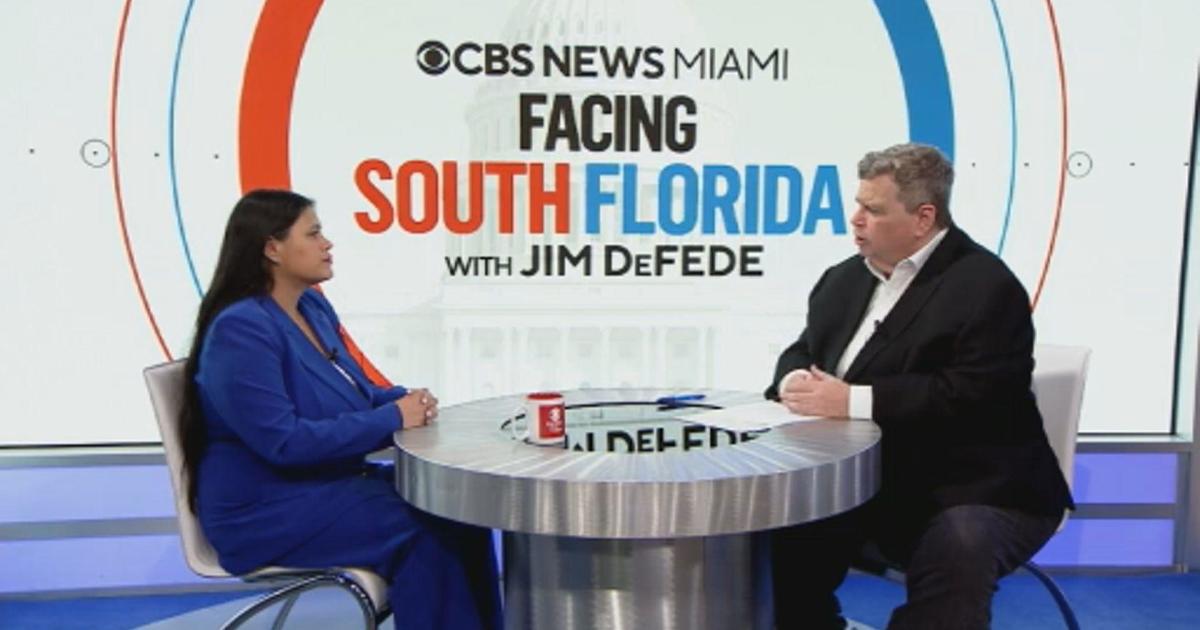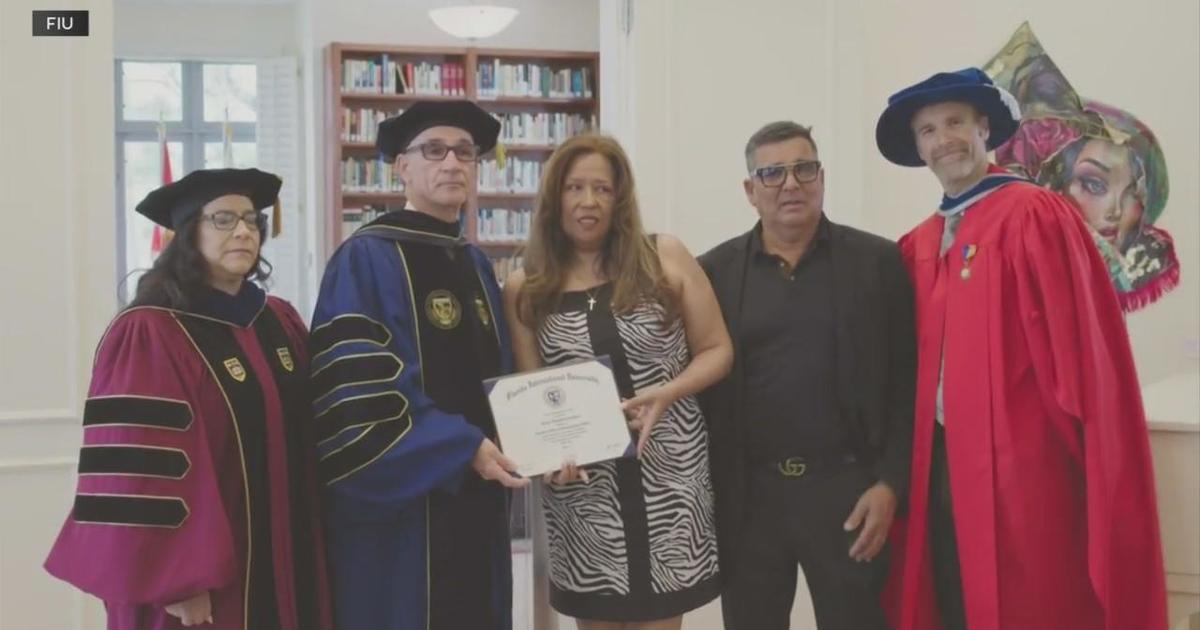I-Team: Do Airport X-ray Scanners Pose A Risk To Travelers?
MIAMI (CBS4) -- While many airplane flyers wanted to mutiny this holiday season, outraged over government screeners seeing images of their body parts, the I-Team has been investigating what you can't see: radiation and what it could mean for you.
"We are very concerned about that being imposed on travelers," says Dr. Robert Stroud who spends his days and nights pouring over data searching for clues that could affect generations of men, women and children who now have to pass through the X-ray Backscatter machines before getting on an airplane.
From the campus of the University of California, San Francisco, the noted professor of biophysics shared his concerns over red flags he and his colleagues presented 9 months ago in a letter to the White House about what is called the Backscatter X-ray machine.
"I don't think we do know what risk we are taking. X-rays are intrinsically ionizing radiation. They damage human tissue," says Stroud.
For months, the federal government has been assuring the public that getting scanned is safe. TSA Spokeswoman Sari Koshetz met with Chief I-Team Investigative Reporter Michele Gillen, "We consider it a miniscule amount of radiation," says Koshetz.
But Stroud isn't so sure. That is why he says, he and his colleagues first wrote to the White House. Months later it responded to Stroud's letter with an evaluation by TSA and FDA endorsing the safety of the technology. It concluded that the X-ray security products and practices "Do not cause a significant risk to the public health." Gillen asked Stroud, "That is not ruling out that it doesn't pose a risk?"
"You are absolutely right," says Stroud.
The I-Team has been trying to get access to evidence the government has cited in its position that the X-ray scans are safe, such as the Johns Hopkins University Applied Physics Lab report. According to Koshetz, "Federal agencies and third parties including Johns Hopkins have studied the effects and dosage and they have convinced us that we are correct in our assessment that there is a minuscule amount of radiation being admitted by the scans."
But what Stroud calls key data in the Johns Hopkins assessment is being withheld from the public. Literally blacked out." The document is heavily redacted," says a troubled Stroud.
"But it's not just the redactions he finds of concern. The radiation safety evaluation was not conducted at the Johns Hopkins Lab in Baltimore, Maryland. The report admits "a spare system was not available to facilitate this." Instead, it was tested at the manufacturer's lab in California. The test was not performed on the exact configuration of the system in place in America's airports.
Who at Johns Hopkins stands behind the study?
"There are no names on the document to say who actually wrote this document and who is responsible," says Stroud.
The I-Team has tried to find out but the University will not reveal their names. But a spokeswoman did tell Gillen that the scope of the study has been misinterpreted - including by the government - that Johns Hopkins had not been asked to prove the safety of the scanners and it did not prove the scanners are safe.
Helen Worth, spokeswoman for the APL wrote the I-Team, "APL was not asked to verify the safety of the scanner, merely to evaluate the technology. We determined that radiation dosage levels fell within American National Standards Institute guidelines. Our work did not involve determining the effect of that level of radiation on humans."
Gillen raised this to Koshetz and asked: "A Johns Hopkins spokesperson is very concerned that the study is being misinterpreted and misused by the government. Have you ever heard that before?"
"No," she responded.
Stroud says it's time for outside scientists to take a closer look.
"I do think it is time for an independent investigation that really allows people to understand what the risk is that they take going through the scanner," says Stroud.
And the next time he travels, if he has the option of choosing between the X ray scanner and the pat down, which will he choose?
"Oh, the pat down. Every time," say Stroud.
The Backscatter X-ray machines are manufactured by Rapiscan. Company representatives did not return the I-Team's calls requesting an interview.
The Backscatter X-ray machine, according to TSA, is currently deployed at 38 U.S. airports including Fort Lauderdale and Orlando in Florida.
Airports that employ the Backscatter X Ray Machine:
Boston Logan International (BOS)
Boise Airport (BOI)
Bradley International (BDL)
Brownsville (BRO)
Buffalo Niagara International (BUF)
Charlotte Douglas International (CLT)
Chicago O'Hare International (ORD)
Cincinnati/Northern Kentucky International (CVG)
Corpus Christie (CRP)
Dulles International (IAD)
El Paso International (ELP)
Fort Lauderdale-Hollywood International (FLL)
Gulfport International (GPT)
Grand Rapids (GRR)
Harlingen/Valley International (HRL)
John F. Kennedy International (JFK)
Kansas City International (MCI)
LaGuardia International (LGA)
Lambert/St. Louis International (STL)
Laredo International (LRD)
Lihue (LIH)
Los Angeles International (LAX)
Luis Munoz Marin International (SJU)
McAllen Miller (MFE)
Memphis International (MEM)
Mineta San José International (SJC)
Oakland International (OAK)
Omaha Eppley Field (OMA)
Orlando International (MCO)
Phoenix International (PHX)
Pittsburgh International (PIT)
Port Columbus International (CMH)
Saipan International (GSN)
San Antonio International (SAT)
San Diego International (SAN)
(Source: TSA)



